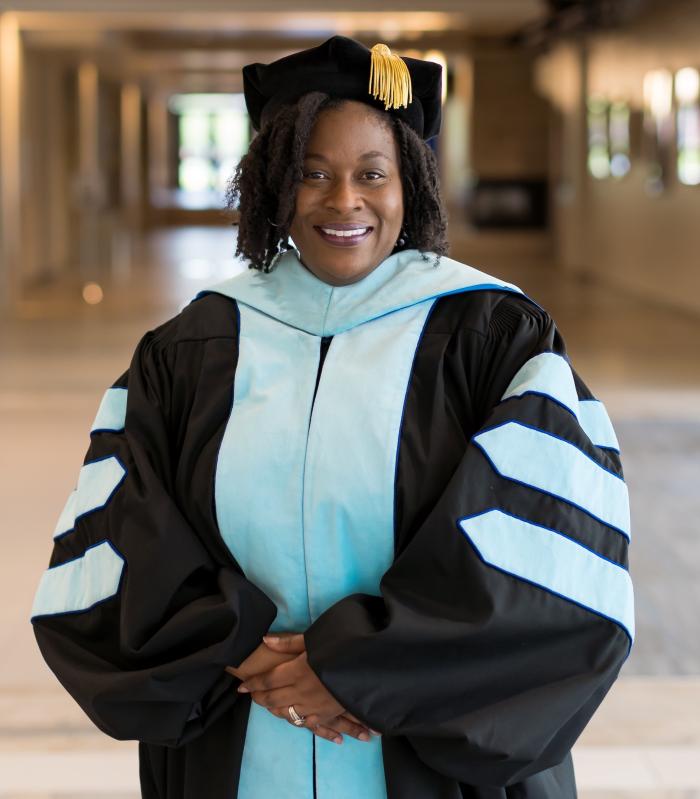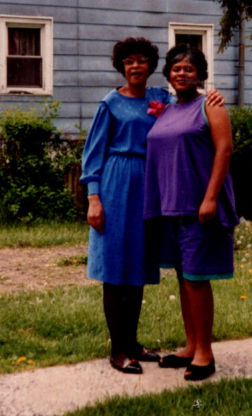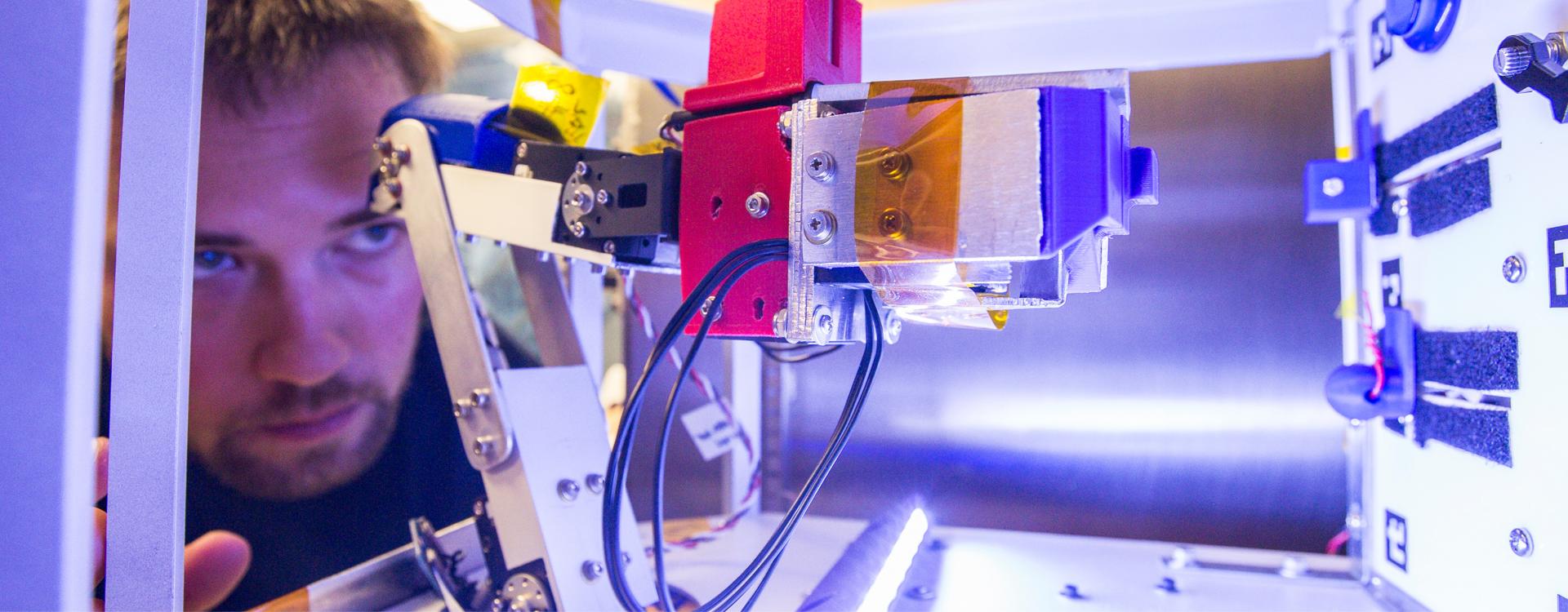After family health tragedies, Dr. Letitia Johnson-Arnold vowed to change community health
In 1997, Letitia Johnson-Arnold was getting ready to graduate from West Virginia University as a first-generation college graduate. But a series of tragedies reshaped her life and outlook as six immediate family members, including her mother, passed away within a nine-month span.
It was a devastating period for Johnson-Arnold. She watched firsthand as advanced cancer and chronic health conditions ravaged her family. Only one member of the six got to see her graduate before passing.
“They were my support system. Being the first person in my family to graduate from college was a really big deal and a powerful moment, so it was hard they missed it,” she said. “Experiencing so much loss in such a short amount of time really affected me. I wanted to figure out how to prevent this from happening.”
She said a lack of access to healthcare in her family’s community played a significant role in that tragic year, and ultimately changed the trajectory of her career.
Johnson-Arnold graduated with a bachelor’s in psychology with intentions of becoming a psychologist, but changed gears to pursue a master’s degree in Community Health Education.
“I chose Community Health as opposed to Public Health because I wanted to get into the community and help on a deeper level,” she said. “It better suited me because it’s a little more hands-on and intimate. You really get to know members of the community, connect with gatekeepers, and establish trust so that individuals will come to you when they need to access resources.”
After college, she married her husband, who was active-military. Over the next 20 years, they lived in six states where Johnson-Arnold filled various community health roles, including her first at the South Carolina HIV/AIDS Council.
“This position really fueled my passion for the community heath field,” she said. “I knew I was on the right path.”
In 2012, they arrived in Fayetteville where her husband eventually retired and they decided to settle down. She spent the last eight years at Fayetteville State University as a Medical and Health Program Consultant in Student Health Services, and later earned her doctorate in Educational Leadership from FSU.
After the COVID-19 pandemic was in full swing, Johnson-Arnold felt a calling.
“I saw the COVID numbers continuing to increase and felt like I needed to do more. I always knew I wanted to be in a helping profession because my mother instilled in me the importance of service. So I thought, ‘How can I best be of service right now?’” she said.

“When I saw the opening for this position at Durham Tech I just knew it was where I needed to be,” she said. “I was at a point in my life where I could teach everything I’ve learned about community health over the last 20 years.”
Johnson-Arnold became Coordinator for the Community Health Worker program at Durham Tech in October 2021.
“Coming from community health and being a health educator, I understand the value of what community health workers do,” she said. “This program is critical because community health workers are needed more now than ever, and COVID has really shed a light on how valuable they are.”
Pam Krakow, Director of the Nurse Aide and Community Health Worker programs, said Johnson-Arnold has made a significant impact in a short period of time.
“She has gracefully and adeptly navigated not only the large learning curve of Durham Tech, but also the local community health worker culture, into which she has infused her passion to educate and serve,” Krakow said. “Her energy for creating an outstanding and unique program at Durham Tech is contagious.”
The Community Health Worker program launched a 16-week course in Fall 2020. It teaches the core competencies of community health workers: communication, capacity building, service coordination, interpersonal skills, advocacy, outreach, personal/professional development, education and facilitation skills, and knowledge development about health issues (i.e., social determinates of health).
Since the program launched, 97 students have enrolled, including a class that was taught entirely in Spanish. In Spring 2022, enrollment in the course reached max capacity and began a waitlist.

In Fall 2022, the course will expand to include an option for a 30-hour work-based learning field practicum so students can gain hands-on experience as a community health worker.
“These positions are in high demand and I think it will only continue to grow,” Johnson-Arnold said. “If you want to make a difference in your community and support others in making positive choices that could save their life or the lives of their loved ones, you should enroll in this class.”
When she’s not at Durham Tech, Johnson-Arnold is working on her business, Intrinsic Health and Wellness Solutions, where she provides health coaching, health consultant services, and teaches self-care.
“I feel so grateful to do what I do everyday,” she said. “My mom always told us, ‘You can do anything you want to do, as long as its right.’ One of the greatest lessons she taught me was how to listen and how to care for others, so I feel like I have found my purpose in the community health field.”
Johnson-Arnold and her husband are currently house hunting in Durham and hope to call it home very soon.
________________________________
Contact Marcy Gardner, Content and Social Media Coordinator, at gardnerm@durhamtech.edu

